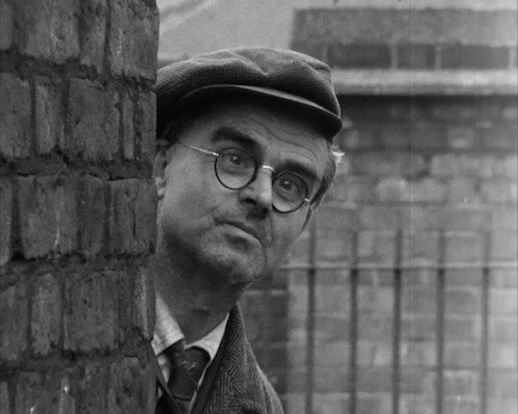 Visions of Change: The Evolution of the British Documentary, Volume 1 BBC 1951 – 1967, DVD 2-disc set, BFI,
Visions of Change: The Evolution of the British Documentary, Volume 1 BBC 1951 – 1967, DVD 2-disc set, BFI,
Review by Ken Worpole
The television arts documentary is one of the most successful of all TV genres. This collection of eleven early BBC documentaries starts appropriately with a half-hour profile of sculptor Henry Moore, broadcast two days before Moore’s major Tate retrospective in 1951. The voice-over by actor Bernard Miles is less mannered and reverential than usual, largely avoiding the characteristic ‘speaking to the nation’ tone common to the period. Written and produced by John Read, filmed by Alan Lawson, with music by William Alwyn, it flew the flag for the artistic teamwork that produced such programmes, in which film-makers, writers, musicians and sound technicians saw the television documentary as a potential artform in its own right.
There’s a lot of proletarian-noir here too. Whereas the music for the Henry Moore film was mid-century chamber music, you know you are in the back streets as soon as the wistful sound of a lone harmonica is heard. Denis Mitchell’s 1957 film, Night in the City, mixes buskers, rat-catchers, wrestling matches and evangelical faith-healing, the latter embodied in a wonderful and moving portrait of the poor, lonely and sick – including a significant number of recently arrived black migrants – gaining sustenance from chapel hymns and the laying on of hands at the Sharon Full Gospel Church in Manchester. The music in the film was by Ewan McColl. In this period there was a considerable cross-over in personnel between the folk music scene, the pioneers of the great radio ballads – Charles Chilton, Philip Donnellan, Charles Parker, Ewan McColl, Peggy Seeger – and the rising BBC television documentary movement. There was also more than a nod to the influence and social commitment of the pre-war Mass Observation movement, as can be seen in the lovely sequences of children’s street games and skipping songs, captured in the 1959 film, Morning in the Streets, by Denis Mitchell and Roy Harris.
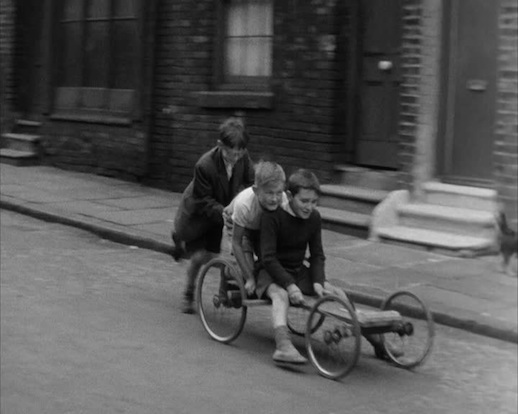
It is Donnellan who made the most outstanding film collected here, Joe the Chainsmith (1958), with music by John Cole and James Beaumont. Set in the Black Country village of Cradley Heath, the film focuses on the life of local blacksmith, Joe Mallen, at work in the forge, commandeering the pub sing-song, racing whippets, exhibiting bull terriers – a man for all seasons. The scene of five chainsmiths rhythmically hammering a white-hot steel chain-link the size of a car tyre into perfection of form, filmed as a ballet mechanique, is as good as anything by Eisenstein or Vertov.
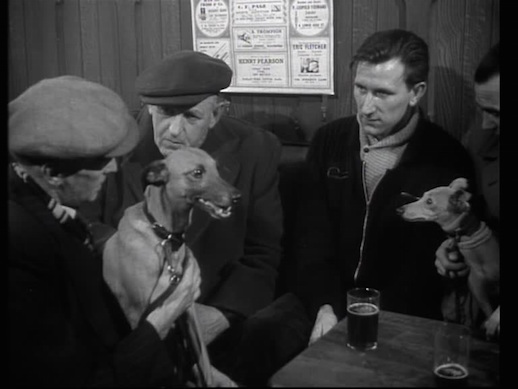
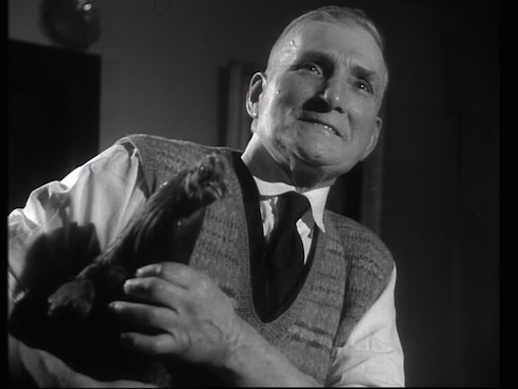
Between Two Rivers, written and directed by the young Dennis Potter was transmitted on the 16 November 1960. I remember – just – seeing it at the time and quickly adopting and repeating all its political and cultural nostrums as if they were my own. Potter had won a place at the local grammar school and gone on to Oxford, subsequently returning with a film crew to his native Forest of Dean mining village to ponder the future of working class life. He had left the village, he said, overjoyed to get away, but coming back had made him realize the warmth and security of close-knit village life (even though his subsequent autobiographical TV dramas indicated otherwise). The soundtrack is cool jazz, and the attitudes struck at the end are those gleaned from Richard Hoggart, notably that working class life and culture is under threat from candy floss culture, Elvis Presley, and, yes, television itself. Potter seemed unaware of the paradox that he was denouncing the very medium he was simultaneously employing to such good effect, a medium he would later revolutionise in Pennies From Heaven and The Singing Detective.
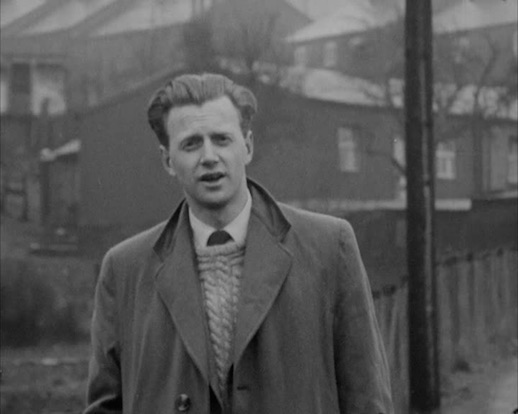
Ken Russell’s 1962 Monitor programme, Pop goes the Easel, is thin stuff, though others have described it as seminal. It jauntily follows in catch-us-if-you-can style four upcoming British pop artists – Peter Blake, Peter Phillips, Pauline Boty and Derek Boshier – as they flit from studio to club and back again. Little interest is evinced in their art, just their lifestyle. Philip Donnellan’s 1964 study of West Indian migrants in Birmingham, The Colony, is by contrast thoughtful, inquisitive, concerned and at times celebratory, with full and proper respect given to his subjects and their lives. Two programmes about a single industrial dispute at a car company in Coventry, Dispute (1967), totalling over one and a half hours of fly on the wall filming of arbitration meetings (eat your heart out, Andy Warhol), provide hard going. Yet at times it is genuinely dramatic. Ground-breaking when it was made, it was filmed by Jack Gold, Ken Ashton and Paul Watson in real time during a bitter dispute.
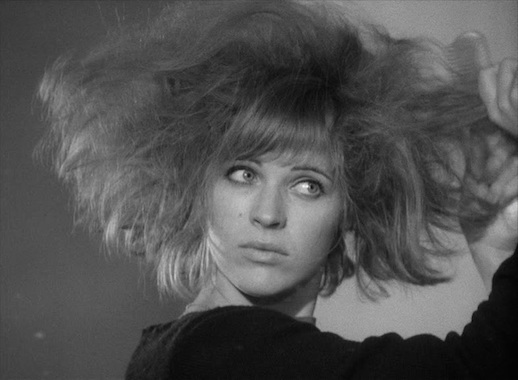
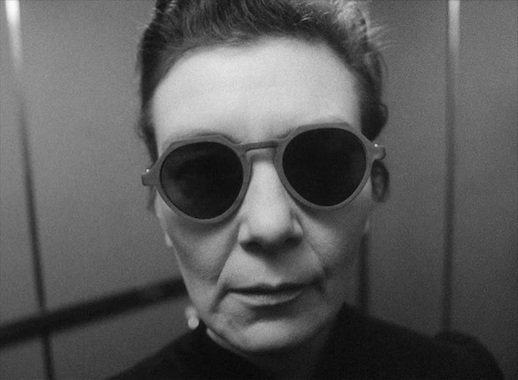
This is a world we have lost, but the seeds of a more democratic visual culture are, in these pioneering documentaries, being sown. The two DVDs provide a reminder of how pervasive and influential was the social idiom of folk music in the 20th century, even in the new ‘mass’ media, through the work of people such as McColl, Parker, Donnellan, and Potter (followed by Joan Littlewood and others), who moved from the folk club, music hall and the oral tradition to the broadcasting studios and the movie camera to great and lasting effect.
Ken’s latest book, The New Jerusalem: The Good City and the Good Society has just been published by Swedenborg Society. Read Travis Elborough’s review for Caught by the River.